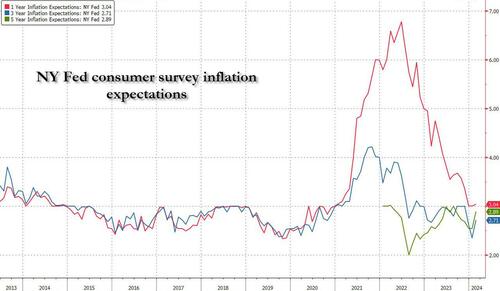Brexit and fintech: A spring stocktake
The United Kingdom no longer has the choice but to adapt to the post-Brexit times, making digital finance one of its priorities.
It has been four months since the Brexit trade deal came into effect between the United Kingdom and the…

The United Kingdom no longer has the choice but to adapt to the post-Brexit times, making digital finance one of its priorities.
It has been four months since the Brexit trade deal came into effect between the United Kingdom and the European Union. The deal, in common with other free trade agreements, does very little to support the export of financial services from the U.K. into the single market. As a result, spring has seen financial services firms, including those in financial technology adjusting to different trading relations with the EU, while also managing the ongoing COVID-19 restrictions.
Most notably, U.K. financial services have lost their automatic rights to service EU clients from their U.K. base, using the so-called passporting rights that U.K. firms had during the time as a member state. Passporting has been replaced by equivalence decisions. However, this is not a fair replacement. Equivalence is a unilateral decision granted by the EU in areas of finance, where it recognizes the U.K.’s regulatory framework to be equivalent to its own. These decisions can be withdrawn with 30 days’ notice and do not cover the whole financial services sector. For example, retail bank lending and depositing are not subject to equivalence decisions.
To date, equivalence has only been granted to the U.K. in two areas deemed to be questions of systemic financial stability. As a result, U.K. financial services are currently operating with less EU market access than some of their key competitors, including the United States and Singapore.
Related: Fintech in the United Kingdom after Brexit
Several financial institutions have responded by relocating parts of their business to other European financial centers, including Paris, Frankfurt, Amsterdam and Dublin. Latest estimates suggest that more than 440 financial institutions have undertaken such moves, involving around 7,500 jobs out of the United Kingdom.
In addition to examining the implications of Brexit on existing business models in financial services, it is equally important to consider the opportunities for future growth that currently exist for U.K. finance. Indeed, the political discourse surrounding Brexit has made much of the opportunities for the U.K. in terms of “taking back control.”
The U.K. and digital finance
During the Brexit trade negotiations of 2020, it was not clear what the U.K. would choose to use its new-found regulatory sovereignty for. However, early indications have surfaced since the deal. It is clear that fintech and digital finance, alongside green finance, is an area that the U.K. is seeking to prioritize for development to make up the business that has been lost to the EU. In the case of fintech, this clearly fits alongside a wider interest in tech-driven economic growth by the government.
Reflecting the importance attached to digital finance, it has been one of the areas that has seen the most political support and policy announcements since the trade deal came into effect. For example, a U.K. listing led by former EU Commissioner of Financial Services Jonathan Hill sought to respond to the fact that U.K. tech companies increasingly choose New York as their primary listing venue.
The listing review also argued that the innovative approach to regulation of fintech through the Financial Conduct Authority’s, or FCA’s, regulatory sandbox allowed for more rapid and regulatory change. Since fintech represents one of the “growth sectors of the future,” where the U.K. “is already a leader in Europe,” there must be further development post-Brexit. In early April, Chancellor of the FCA Rishi Sunak responded by announcing at Fintech Week a new FCA “scale box” to support the growth of fintech, based on the success of the regulatory sandboxes in the United Kingdom.
Related: UK’s FCA crypto derivatives ban may push retail investors to riskier grounds
Echoing the wider policy interest in fintech, this spring has also seen the publication of the “Kalifa Review of UK Fintech.” This seeks to capitalize on U.K. leadership in fintech and makes recommendations around capital and skill requirements, among others, for the sector.
However, these reviews also point to areas of challenge and uncertainty, as well as opportunity, for U.K. fintech post-Brexit. One of the most notable areas in this respect is the attraction of highly skilled international talent to work in fintech in the United Kingdom. The implications of Brexit for this, in terms of both international migration and shorter forms of international business travel, are currently unknown, since business travel has been largely shut down due to the COVID-19 restrictions.
U.K.’s financial centers outside of London
Given widely held concerns about the technical skills emanating from the U.K.’s education system, examining how the new Global Talent visa operates in practice will be important in assessing post-Brexit labor markets for U.K. fintech. Similarly, in terms of shorter forms of business travel, as and when the pandemic’s travel restrictions ease, more will be known about how Brexit, as well as COVID-19, have changed the landscape of the financial services’ business travel.
It is also important to explore the implications of Brexit for fintech not only within but also beyond London, particularly given the government’s focus on “building back better” through leveling up regional economic growth post-Brexit.
Again, there are opportunities and challenges for fintech here. The Kalifa Review identified ten clusters of fintech activity across the U.K. that have “the most potential to grow and develop further,” including Edinburgh and Glasgow, Manchester and Leeds, and the North East of England. Such a focus appears to be yielding results, with Goldman Sachs announcing the opening of a major technology hub in Birmingham earlier in April. However, maintaining the attractiveness of these locations, particularly in terms of cost, will be important as other locations within Europe, such as Poland and Portugal, increasingly seek to develop their own, cost-competitive financial clusters.
Similar to the history of London as a financial center, the U.K.’s fintech sector has shown considerable regenerative capacities, adapting its focus to the political and economic landscape of which it is a part. It is clear that there is strong political support for the sector in post-Brexit Britain, and the sector itself will need to respond accordingly as more detail emerges concerning the U.K.’s financial services priorities post-Brexit.
The views, thoughts and opinions expressed here are the author’s alone and do not necessarily reflect or represent the views and opinions of Cointelegraph.
The opinions expressed are the author’s alone and do not necessarily reflect the views of the University of Nottingham or its affiliates.
crypto pandemic covid-19Uncategorized
NY Fed Finds Medium, Long-Term Inflation Expectations Jump Amid Surge In Stock Market Optimism
NY Fed Finds Medium, Long-Term Inflation Expectations Jump Amid Surge In Stock Market Optimism
One month after the inflation outlook tracked…

One month after the inflation outlook tracked by the NY Fed Consumer Survey extended their late 2023 slide, with 3Y inflation expectations in January sliding to a record low 2.4% (from 2.6% in December), even as 1 and 5Y inflation forecasts remained flat, moments ago the NY Fed reported that in February there was a sharp rebound in longer-term inflation expectations, rising to 2.7% from 2.4% at the three-year ahead horizon, and jumping to 2.9% from 2.5% at the five-year ahead horizon, while the 1Y inflation outlook was flat for the 3rd month in a row, stuck at 3.0%.
The increases in both the three-year ahead and five-year ahead measures were most pronounced for respondents with at most high school degrees (in other words, the "really smart folks" are expecting deflation soon). The survey’s measure of disagreement across respondents (the difference between the 75th and 25th percentile of inflation expectations) decreased at all horizons, while the median inflation uncertainty—or the uncertainty expressed regarding future inflation outcomes—declined at the one- and three-year ahead horizons and remained unchanged at the five-year ahead horizon.
Going down the survey, we find that the median year-ahead expected price changes increased by 0.1 percentage point to 4.3% for gas; decreased by 1.8 percentage points to 6.8% for the cost of medical care (its lowest reading since September 2020); decreased by 0.1 percentage point to 5.8% for the cost of a college education; and surprisingly decreased by 0.3 percentage point for rent to 6.1% (its lowest reading since December 2020), and remained flat for food at 4.9%.
We find the rent expectations surprising because it is happening just asking rents are rising across the country.
At the same time as consumers erroneously saw sharply lower rents, median home price growth expectations remained unchanged for the fifth consecutive month at 3.0%.
Turning to the labor market, the survey found that the average perceived likelihood of voluntary and involuntary job separations increased, while the perceived likelihood of finding a job (in the event of a job loss) declined. "The mean probability of leaving one’s job voluntarily in the next 12 months also increased, by 1.8 percentage points to 19.5%."
Mean unemployment expectations - or the mean probability that the U.S. unemployment rate will be higher one year from now - decreased by 1.1 percentage points to 36.1%, the lowest reading since February 2022. Additionally, the median one-year-ahead expected earnings growth was unchanged at 2.8%, remaining slightly below its 12-month trailing average of 2.9%.
Turning to household finance, we find the following:
- The median expected growth in household income remained unchanged at 3.1%. The series has been moving within a narrow range of 2.9% to 3.3% since January 2023, and remains above the February 2020 pre-pandemic level of 2.7%.
- Median household spending growth expectations increased by 0.2 percentage point to 5.2%. The increase was driven by respondents with a high school degree or less.
- Median year-ahead expected growth in government debt increased to 9.3% from 8.9%.
- The mean perceived probability that the average interest rate on saving accounts will be higher in 12 months increased by 0.6 percentage point to 26.1%, remaining below its 12-month trailing average of 30%.
- Perceptions about households’ current financial situations deteriorated somewhat with fewer respondents reporting being better off than a year ago. Year-ahead expectations also deteriorated marginally with a smaller share of respondents expecting to be better off and a slightly larger share of respondents expecting to be worse off a year from now.
- The mean perceived probability that U.S. stock prices will be higher 12 months from now increased by 1.4 percentage point to 38.9%.
- At the same time, perceptions and expectations about credit access turned less optimistic: "Perceptions of credit access compared to a year ago deteriorated with a larger share of respondents reporting tighter conditions and a smaller share reporting looser conditions compared to a year ago."
Also, a smaller percentage of consumers, 11.45% vs 12.14% in prior month, expect to not be able to make minimum debt payment over the next three months
Last, and perhaps most humorous, is the now traditional cognitive dissonance one observes with these polls, because at a time when long-term inflation expectations jumped, which clearly suggests that financial conditions will need to be tightened, the number of respondents expecting higher stock prices one year from today jumped to the highest since November 2021... which incidentally is just when the market topped out during the last cycle before suffering a painful bear market.
Spread & Containment
A major cruise line is testing a monthly subscription service
The Cruise Scarlet Summer Season Pass was designed with remote workers in mind.

While going on a cruise once meant disconnecting from the world when between ports because any WiFi available aboard was glitchy and expensive, advances in technology over the last decade have enabled millions to not only stay in touch with home but even work remotely.
With such remote workers and digital nomads in mind, Virgin Voyages has designed a monthly pass that gives those who want to work from the seas a WFH setup on its Scarlet Lady ship — while the latter acronym usually means "work from home," the cruise line is advertising as "work from the helm.”
Related: Royal Caribbean shares a warning with passengers
"Inspired by Richard Branson's belief and track record that brilliant work is best paired with a hearty dose of fun, we're welcoming Sailors on board Scarlet Lady for a full month to help them achieve that perfect work-life balance," Virgin Voyages said in announcing its new promotion. "Take a vacation away from your monotonous work-from-home set up (sorry, but…not sorry) and start taking calls from your private balcony overlooking the Mediterranean sea."
Shutterstock
This is how much it'll cost you to work from a cruise ship for a month
While the single most important feature for successful work at sea — WiFi — is already available for free on Virgin cruises, the new Scarlet Summer Season Pass includes a faster connection, a $10 daily coffee credit, access to a private rooftop, and other member-only areas as well as wash and fold laundry service that Virgin advertises as a perk that will allow one to concentrate on work
More Travel:
- A new travel term is taking over the internet (and reaching airlines and hotels)
- The 10 best airline stocks to buy now
- Airlines see a new kind of traveler at the front of the plane
The pass starts at $9,990 for a two-guest cabin and is available for four monthlong cruises departing in June, July, August, and September — each departs from ports such as Barcelona, Marseille, and Palma de Mallorca and spends four weeks touring around the Mediterranean.
Longer cruises are becoming more common, here's why
The new pass is essentially a version of an upgraded cruise package with additional perks but is specifically tailored to those who plan on working from the ship as an opportunity to market to them.
"Stay connected to your work with the fastest at-sea internet in the biz when you want and log-off to let the exquisite landscape of the Mediterranean inspire you when you need," reads the promotional material for the pass.
Amid the rise of remote work post-pandemic, cruise lines have been seeing growing interest in longer journeys in which many of the passengers not just vacation in the traditional sense but work from a mobile office.
In 2023, Turkish cruise line operator Miray even started selling cabins on a three-year tour around the world but the endeavor hit the rocks after one of the engineers declared the MV Gemini ship the company planned to use for the journey "unseaworthy" and the cruise ship line dealt with a PR scandal that ultimately sank the project before it could take off.
While three years at sea would have set a record as the longest cruise journey on the market, companies such as Royal Caribbean (RCL) (both with its namesake brand and its Celebrity Cruises line) have been offering increasingly long cruises that serve as many people’s temporary homes and cross through multiple continents.
stocks pandemic testingInternational
This is the biggest money mistake you’re making during travel
A retail expert talks of some common money mistakes travelers make on their trips.

Travel is expensive. Despite the explosion of travel demand in the two years since the world opened up from the pandemic, survey after survey shows that financial reasons are the biggest factor keeping some from taking their desired trips.
Airfare, accommodation as well as food and entertainment during the trip have all outpaced inflation over the last four years.
Related: This is why we're still spending an insane amount of money on travel
But while there are multiple tricks and “travel hacks” for finding cheaper plane tickets and accommodation, the biggest financial mistake that leads to blown travel budgets is much smaller and more insidious.
This is what you should (and shouldn’t) spend your money on while abroad
“When it comes to traveling, it's hard to resist buying items so you can have a piece of that memory at home,” Kristen Gall, a retail expert who heads the financial planning section at points-back platform Rakuten, told Travel + Leisure in an interview. “However, it's important to remember that you don't need every souvenir that catches your eye.”
More Travel:
- A new travel term is taking over the internet (and reaching airlines and hotels)
- The 10 best airline stocks to buy now
- Airlines see a new kind of traveler at the front of the plane
According to Gall, souvenirs not only have a tendency to add up in price but also weight which can in turn require one to pay for extra weight or even another suitcase at the airport — over the last two months, airlines like Delta (DAL) , American Airlines (AAL) and JetBlue Airways (JBLU) have all followed each other in increasing baggage prices to in some cases as much as $60 for a first bag and $100 for a second one.
While such extras may not seem like a lot compared to the thousands one might have spent on the hotel and ticket, they all have what is sometimes known as a “coffee” or “takeout effect” in which small expenses can lead one to overspend by a large amount.
‘Save up for one special thing rather than a bunch of trinkets…’
“When traveling abroad, I recommend only purchasing items that you can't get back at home, or that are small enough to not impact your luggage weight,” Gall said. “If you’re set on bringing home a souvenir, save up for one special thing, rather than wasting your money on a bunch of trinkets you may not think twice about once you return home.”
Along with the immediate costs, there is also the risk of purchasing things that go to waste when returning home from an international vacation. Alcohol is subject to airlines’ liquid rules while certain types of foods, particularly meat and other animal products, can be confiscated by customs.
While one incident of losing an expensive bottle of liquor or cheese brought back from a country like France will often make travelers forever careful, those who travel internationally less frequently will often be unaware of specific rules and be forced to part with something they spent money on at the airport.
“It's important to keep in mind that you're going to have to travel back with everything you purchased,” Gall continued. “[…] Be careful when buying food or wine, as it may not make it through customs. Foods like chocolate are typically fine, but items like meat and produce are likely prohibited to come back into the country.
Related: Veteran fund manager picks favorite stocks for 2024
stocks pandemic france-

 Uncategorized3 weeks ago
Uncategorized3 weeks agoAll Of The Elements Are In Place For An Economic Crisis Of Staggering Proportions
-

 Uncategorized1 month ago
Uncategorized1 month agoCathie Wood sells a major tech stock (again)
-

 Uncategorized3 weeks ago
Uncategorized3 weeks agoCalifornia Counties Could Be Forced To Pay $300 Million To Cover COVID-Era Program
-

 Uncategorized2 weeks ago
Uncategorized2 weeks agoApparel Retailer Express Moving Toward Bankruptcy
-

 Uncategorized4 weeks ago
Uncategorized4 weeks agoIndustrial Production Decreased 0.1% in January
-

 International3 days ago
International3 days agoEyePoint poaches medical chief from Apellis; Sandoz CFO, longtime BioNTech exec to retire
-

 International3 days ago
International3 days agoWalmart launches clever answer to Target’s new membership program
-

 Uncategorized3 weeks ago
Uncategorized3 weeks agoRFK Jr: The Wuhan Cover-Up & The Rise Of The Biowarfare-Industrial Complex



























